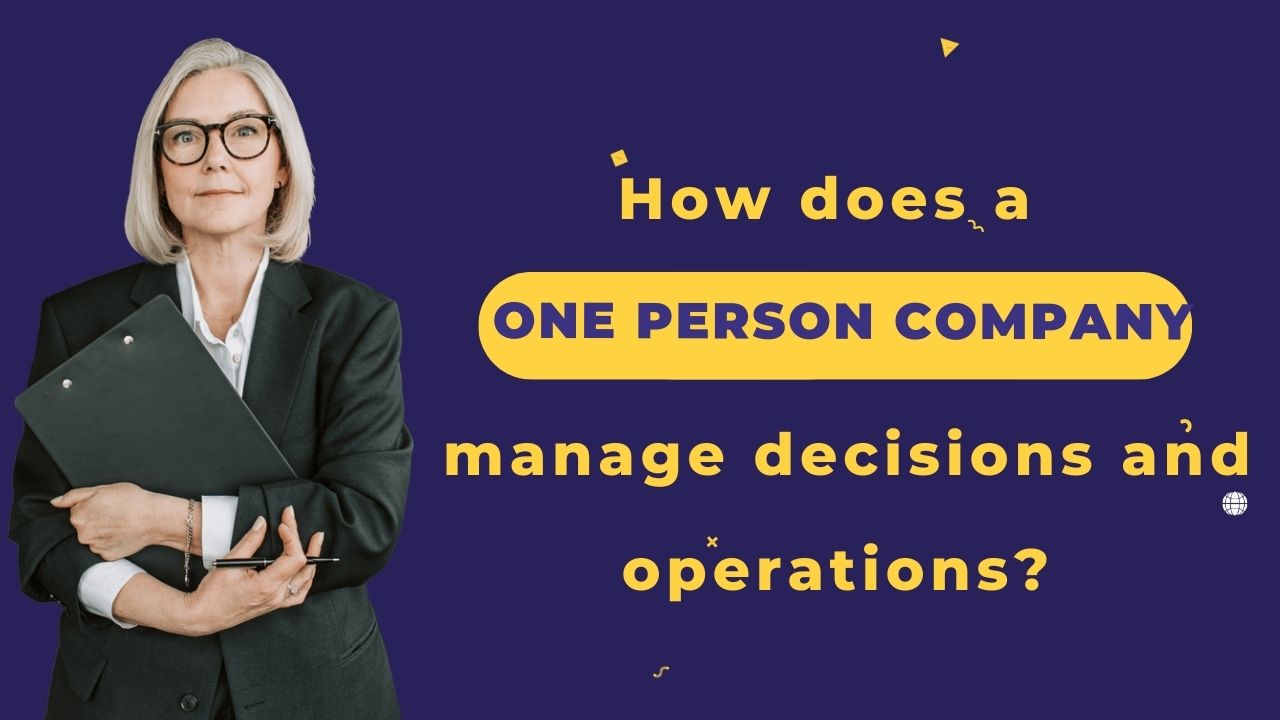
Decision-Making and Operations in a One Person Company (OPC) in India
1. Sole Owner-Director: An OPC is exclusively owned and directed by a single individual, who holds the authority to make all pivotal decisions pertaining to the company's operations.
2. Decision-Making Authority: The owner-director of the OPC has the sole authority to make decisions, without the need for external approvals or consensus-building.
3. Full Control: The owner-director maintains full control over the company's activities, including contracts, hiring, finances, and policies.
4. Operational Autonomy: The owner-director has the autonomy to manage day-to-day operations, set goals, and implement strategies without needing approval from others.
5. Flexibility: The owner-director can adapt and change the business's operations quickly in response to market conditions or evolving needs.
6. Compliance and Legal Obligations: While having significant control, the owner-director must ensure compliance with statutory and legal requirements, including filing financial statements and tax returns.
7. Nominee Director for Contingencies: To ensure business continuity in case of the owner's death or incapacity, an OPC appoints a nominee director.
8. Transition to a Private Limited Company: As the business grows, the OPC can be converted into a private limited company, allowing for a more complex decision-making structure and shareholding.
© 2020 CREDENCE CORPORATE SOLUTIONS PVT. LTD. | Website by Wits Digtal Pvt. Ltd.
Leave a Comment